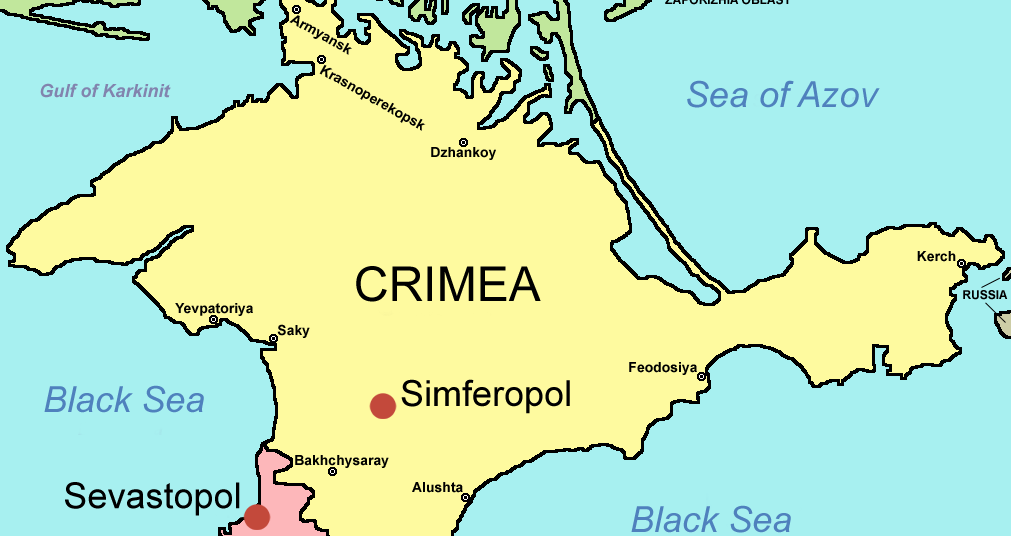Russian expansionism makes many alarm bells go off in the Western world. When Putin’s forces occupied Crimea on February 27, observers in Europe and America immediately compared the event to the Soviet takeover of Czechoslovakia in 1968, or even to Nazi Germany’s invasion of Austria and the Sudetenland. Naturally, Putin’s show of force has intimidated many Western leaders and seriously threatened the fragile balance of influence between Russia and the European Union in Eastern Europe. However, this recent “worst face-off with Moscow since the Cold War” is much more complicated than American (or Russian) news outlets let on and requires more complex analytical tools than simplistic Cold War-era policy logic hinted at by such blunt Cold War comparisons.
The crisis in Crimea, now called “the worst face-off with Moscow since the Cold War,” worries many people because it seems fundamentally irrational. Allusions to bleak episodes in Soviet history are partially a result of the fear and anxiety that results from misunderstanding Russia’s motivation. However, the situation in Crimea is much more complicated than simple Cold War allusions let on. Russia’s presence on the peninsula simply adds another factor to a complicated milieu of competing ethnolinguistic identities, political preferences and clashing world views.
Reviewing Crimea’s complicated history helps to understand the complex nature of the issue at hand. A valuable territory with ample arable lands and access to the Black Sea, the peninsula has been fought over by competing forces for thousands of years. In antiquity, it was incorporated into the Greek and Roman empires. It then passed through the hands of Gothic tribes, the Byzantine Empire, the ancient Rus state, and was eventually taken over by the Ottomans. In 1783, Russia annexed the territory and managed to defend its claim to it against other European powers in the Crimean War of 1853. After the formation of the USSR, it formally became the Crimean Autonomous Soviet Socialist Republic, until it was re-annexed as an administrative region within Russia in 1945. It stayed a part of Russia until 1954, when Khrushchev transferred it to the Ukrainian Soviet Socialist Republic. Crimea went along with the rest of Ukraine when the country voted for its independence from Russia in 1991, though only 54 percent of Crimeans voted for the independence, the lowest margin in all of Ukraine.
Despite having thrown in its lot with the rest of the country, Crimea fought to maintain its autonomy within the framework of the new Ukrainian state. At the time of independence, the framework through which Crimea would maintain this status was not at all clear. The last 20 years have seen resurgent waves of (often pro-Russian) separatism within the peninsula, resulting in redrafted agreements with the central government in Kiev. It wasn’t until 1998 that the Autonomous Republic of Crimea – as the region is known today – was constitutionally established.
This tumultuous historical process of nation-building was complicated by the presence of multiple ethnic groups. Crimea’s population is split into three main groups: 58 percent Russian, 24 percent Ukrainian and 12 percent Crimean Tatar. The apparently clear-cut difference between these groups is not entirely representative of the reality in Crimea, since lines may be a bit blurred between Russian and Ukrainian identities and simply identifying as Russian or Ukrainian does not necessarily indicate any particular political preference. The Tatar population also brings many considerations to the mix. Banished en masse from the region by Stalin in 1945 for allegedly conspiring with the Nazis, Crimean Tatars have been making their way back to the peninsula since Ukrainian independence. It’s not hard to guess why they are staunchly anti-Russian in their political views.
In the past, the potentially explosive amalgamation of disparate ethnic identities and contending views on regional identity has been kept stable due to Kiev’s careful measures and Russia’s diplomatic distance from the issue. Ethnic Russians were gratified when Russian was established as an official language along with Ukrainian, and the Tatar minority was able to establish many institutions through which its views could have an effect on regional politics. During earlier secessionist episodes, Russia kept its distance out of respect for Ukraine’s territorial sovereignty.
The new government — made up primarily of EU-leaning protest leaders from western Ukraine — has alienated much of the country by trying to repeal the status of Russian as an official language. As of now, Ukraine’s new parliament has also failed to include representation from more pro-Russian, eastern regions of the country.It is in this atmosphere of confusion that Russia (read: Putin) seized an opportunity to pursue regional interests while simultaneously snubbing the West. Russian news outlets stoke pro-Russian sentiments in eastern Ukraine, criticizing the “fascist takeover of Kiev” and decrying the alleged imminent abuses of despotic westerners. The presence of Russian troops in Crimea is just the latest step in a campaign meant to destabilize the Euromaidan movement.
Many observers worry about the invasion of Crimea because of its apparent irrationality. Why would Russia risk its ties with the Western world over a territory of 2 million? It certainly is a hard question to answer under traditional rational-choice policy analyses. Perhaps the reasoning behind the current conflict is a bit more abstract than simple economic or political calculations.
A more European-leaning Ukraine would mean trade losses for Russia, but more importantly, it represents the breakup of a Slavic collective identity. Russia’s move — nominally meant to protect Russian-speakers in Crimea — indicates a supra-national sense of shared culture, as well as a responsibility to protect it. Putin undoubtedly sees himself as a guardian of Eurasian values, meant to defend an alternative worldview from the encroaching and invasive West. For him, the value of Crimea is not monetary or political, but rather cultural. If he can play by his own rules, blatantly defy international law as well as the Ukrainian constitution and manage to lop off a piece of this newly pro-western country, he will have proven the strength of his alternative worldview.
